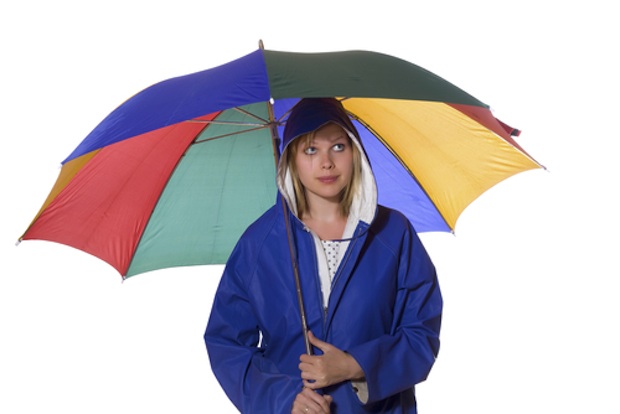What do you say when you look at your life? Is your glass half-full, or half-empty? Your life, or at least your longevity, may depend on your answer.
Recent studies bucking the trend toward “positive psychology,” and the science of being happier, indicate that pessimism – not optimism – may actually contribute to living a longer life. Of course, the pessimists among us will doubt these findings, which ironically may make these promises more likely to come true!
Before all you pessimists start celebrating, though (itself a funny image, a celebration of pessimism), let’s be clear about what the new research shows. It does not suggest that unremitting pessimism is helpful. It suggests that at specific stages of life – during late childhood and old age – a higher degree of pessimism helps us live longer.
It makes sense, if you think about it. When younger, we tend to feel invincible. Lord knows that feeling allowed me to do some risky things when I was younger. True for you, as well, I bet! A dose of pessimism acts as a corrective in such moments. It’s why ads which portray the dangers of smoking, and the hazards of drinking or texting while driving, are so graphic – and so important. They aim to deliver a healthy dose of pessimism into otherwise dangerously optimistic minds.
In old age, as pessimism increases, we tend to experience less disappointment; we cope better as life draws to a close.
At the other end of life, this evidence suggests that in old age, as pessimism increases, we tend to experience less disappointment, and therefore, we cope better as life draws to a close. That leads to living longer. Again it makes sense.
That said, if we lower our expectations too much, and anticipating bad outcomes becomes our whole way of seeing the world, one might argue that there is little point to living! If we find no joy, no positive meaning in our existence, is it really worth continuing on?
Pessimism clearly has its place in living well and wisely, but so does optimism. It’s not about throwing away those “rose colored glasses.” It’s about carrying multiple sets of glasses with us through life, and being willing to wear them at different times.
I tend to be a “half full” kind of person when it comes to life in general, and a “half empty” kind of person when it comes to any single situation, especially if the stakes are high. You might say that I live by the old adage “Hope for the best, plan for the worst.” Even there, I believe if the time we allot planning for the worst outweighs the time allotted to hoping for the best, we’re probably out of balance.
With a long enough view, I tend to assume things will work out, but that we need to be mindful of various day-to-day challenges and potential negative outcomes which would be more pleasant to ignore.
Will that approach make us live longer? It just might. But even more importantly, it can help us live better, and, dare I say, happier.

Listed for many years in Newsweek as one of America’s “50 Most Influential Rabbis” and recognized as one of our nation’s leading “Preachers and Teachers,” by Beliefnet.com, Rabbi Brad Hirschfield serves as the President of Clal–The National Jewish Center for Learning and Leadership, a training institute, think tank, and resource center nurturing religious and intellectual pluralism within the Jewish community, and the wider world, preparing people to meet the biggest challenges we face in our increasingly polarized world.
An ordained Orthodox rabbi who studied for his PhD and taught at The Jewish Theological Seminary, he has also taught the University of Pennsylvania, where he directs an ongoing seminar, and American Jewish University. Rabbi Brad regularly teaches and consults for the US Army and United States Department of Defense, religious organizations — Jewish and Christian — including United Seminary (Methodist), Yeshivat Chovevei Torah (Modern Orthodox) Luther Seminary (Lutheran), and The Jewish Theological Seminary (Conservative) — civic organizations including No Labels, Odyssey Impact, and The Aspen Institute, numerous Jewish Federations, and a variety of communal and family foundations.
Hirschfield is the author and editor of numerous books, including You Don’t Have To Be Wrong For Me To Be Right: Finding Faith Without Fanaticism, writes a column for Religion News Service, and appears regularly on TV and radio in outlets ranging from The Washington Post to Fox News Channel. He is also the founder of the Stand and See Fellowship, which brings hundreds of Christian religious leaders to Israel, preparing them to address the increasing polarization around Middle East issues — and really all currently polarizing issues at home and abroad — with six words, “It’s more complicated than we know.”

